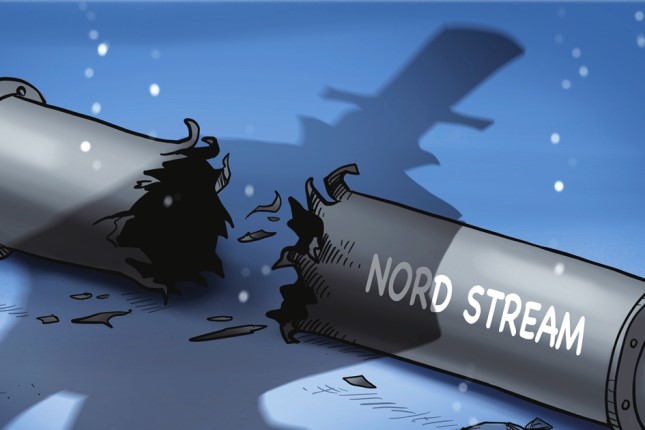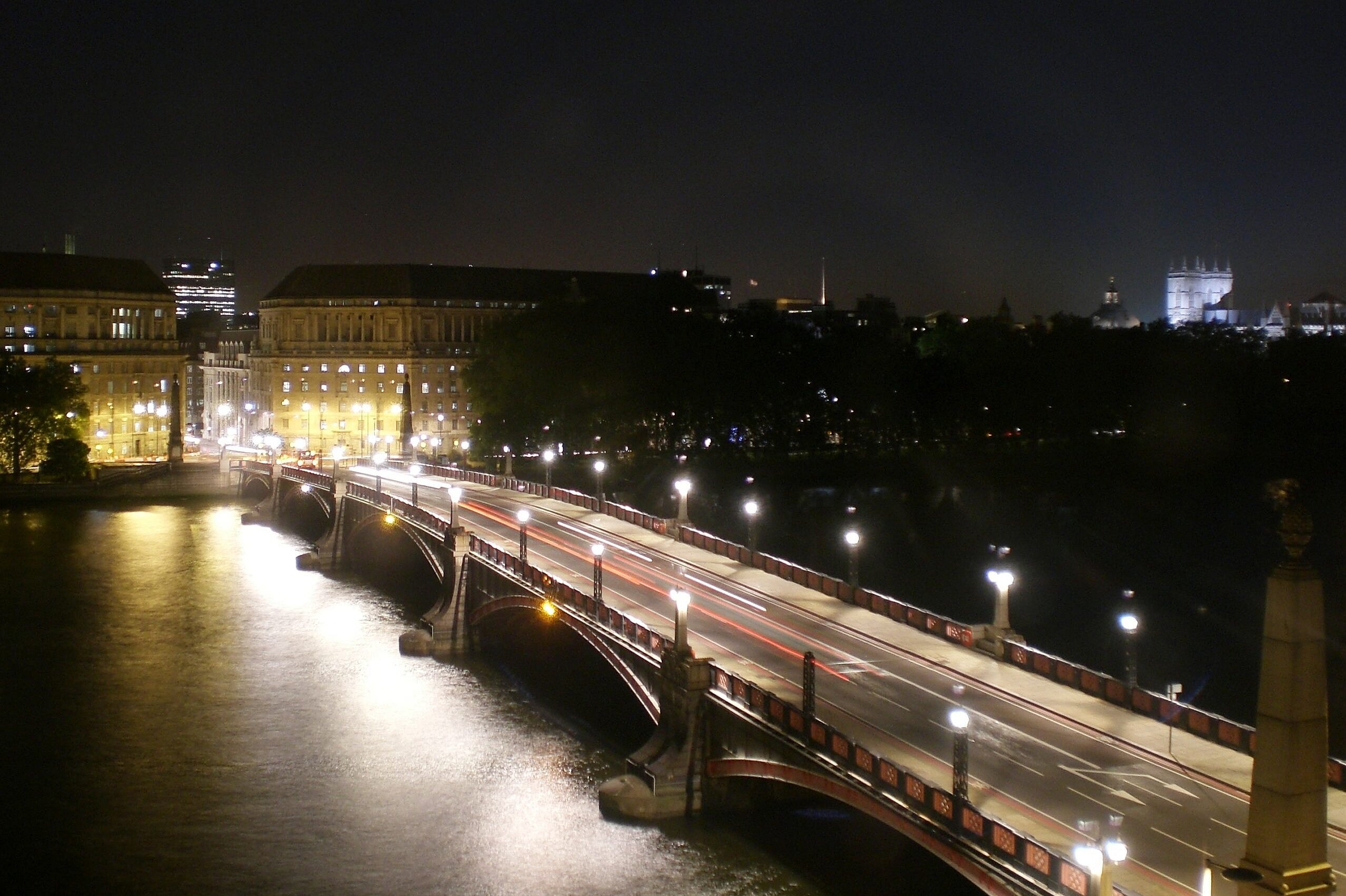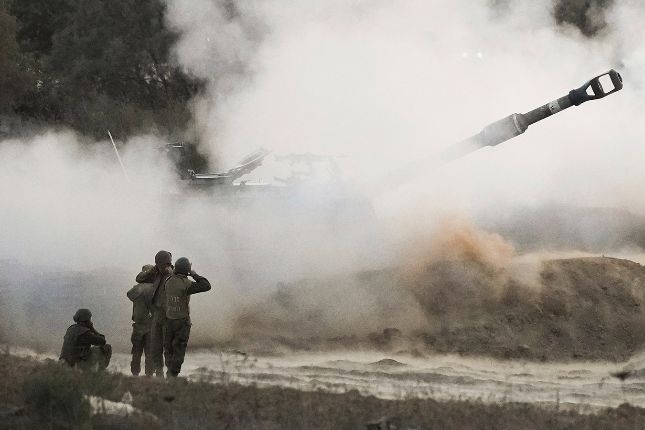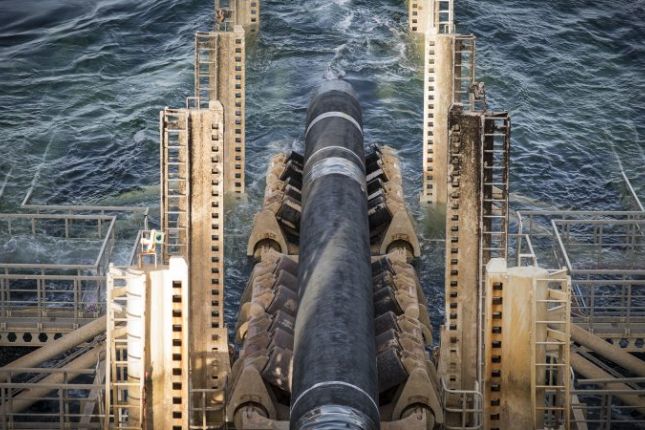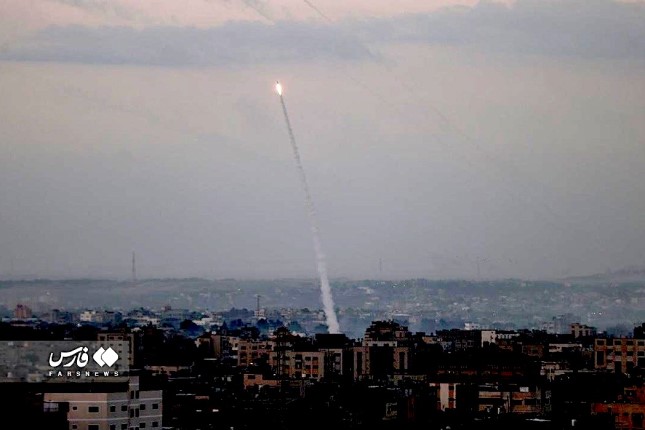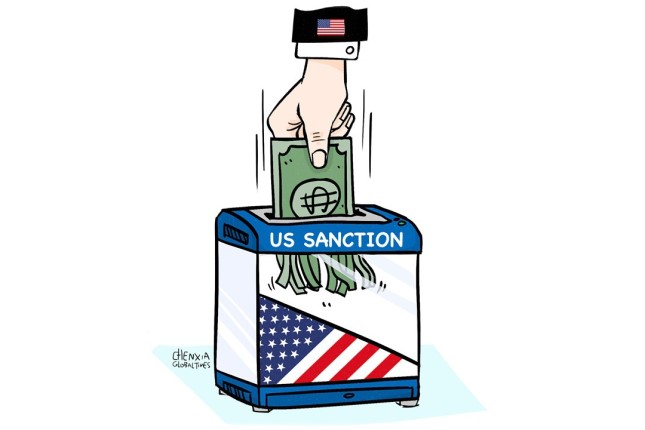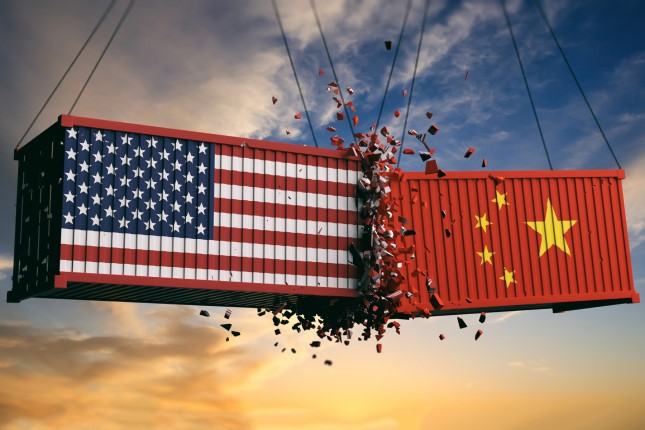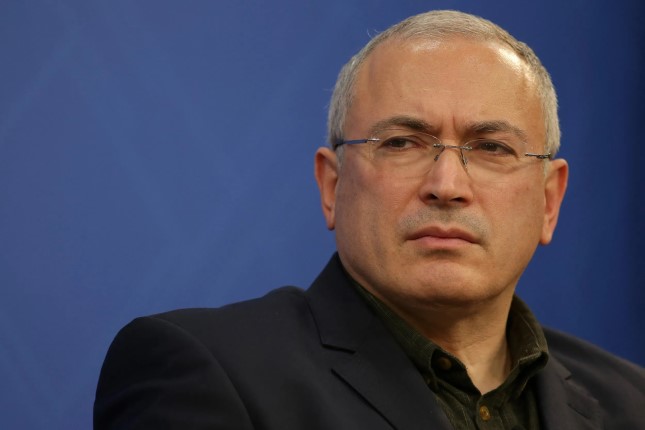Just entered a new episode as the New York Times, citing anonymous intelligence officials, said on Tuesday that a pro-Ukraine group sabotaged the pipelines, for which Ukraine denies involvement or knowledge.
Talking about being pro-Ukraine, there is no pro-Ukraine group with the capability and intention to do so other than the US, some netizens from Chinese and overseas social media platforms commented about the NYT report.
Observers said that the report itself was not even worth refuting considering the ambiguous accusation, the unknown source and the vague so-called evidence provided.
Yet Washington enjoys such a chaotic situation, and is likely to mobilize more American media to muddy the water while strengthening deterrence targeted at its transatlantic allies, observers said, predicting the narrow possibility of a UN-led probe.
Officials quoted by the NYT declined to disclose the nature of the intelligence, how it was obtained or any details of the strength of the evidence. They said there was much they did not know about the perpetrators and their affiliations.
The boat used to plant the explosives was a yacht hired from a firm based in Poland, which reportedly belonged to two Ukrainians, according to German media outlet Die Zeit. The nationalities of those who carried out the attack were unclear.
According to the NYT report, intelligence had no evidence showing Ukrainian President Volodymyr Zelensky or his top lieutenants were involved, or that the perpetrators were acting at the direction of any Ukrainian government officials.
Senior Ukrainian official Mykhailo Podolyak posted on Twitter that Ukraine "has nothing to do with the Baltic Sea mishap." He added that he had no information about pro-Ukrainian "sabotage groups."
Russia dismissed the credibility of the intelligence and complained that it had been prevented from related investigations.
"This is obviously a coordinated spread of disinformation in the media," Kremlin spokesperson Dmitry Peskov told Sputnik.
The new intelligence made a splash on social media, yet the majority of readers were not convinced by the new narrative blaming a "pro-Ukraine group."
"From available information, pro-Ukraine equals US" and "Is the group called the 'Biden administration'?" are two typical comments.
Lü Xiang, an expert on US studies at the Chinese Academy of Social Sciences, told the Global Times on Wednesday that the US has confidence that no direct evidence can point to the perpetrator being itself.
Li Haidong, a professor at the Institute of International Relations at the China Foreign Affairs University, said the US is very skilled at playing dirty. "If the US was behind the sabotage, Americans definitely would have carefully planned how to destroy or hide the evidence and muddy the water to mislead the public," Li said.
Lü predicted more American media organizations would be mobilized by the government to set off smoke bombs on the issue, partly to offset the impact of a report by US investigative journalist Seymour Hersh accusing the US government of involvement.
According to analysts, the US is satisfied with the "Schrodinger's cat" state - the country bears no legal liability, because suspicions are not enough evident to start an investigation into the US, while such suspicions consolidate a US image of "contempt of international law and justice."
The transatlantic allies would "fear the consequences" if they do not act according to the US' will, Lü said.
After the blasts in September 2022, Germany, Sweden and Denmark opened joint investigations into the incident, which was widely acknowledged as sabotage. Russia has complained about being blocked from the probe and called on an international independent team to conduct the investigation.
Zhang Jun, Chinese envoy to the UN, said at the UN Security Council briefing on the matter on February 21 that "as the most authoritative and representative international organization, the UN can play an active role in conducting an international investigation and ensuring the security of transboundary infrastructure."
A UN-led investigation would be the most authoritative approach to uncover the truth, but amid the confrontation between the US and Russia at the platform, its feasibility is under question, analysts said.
The Nord Stream blasts would very likely end up without a conclusion, Lü said.
Photo: US the culprit. Illustration © Liu Rui / GT.
Source: The Global Times.
